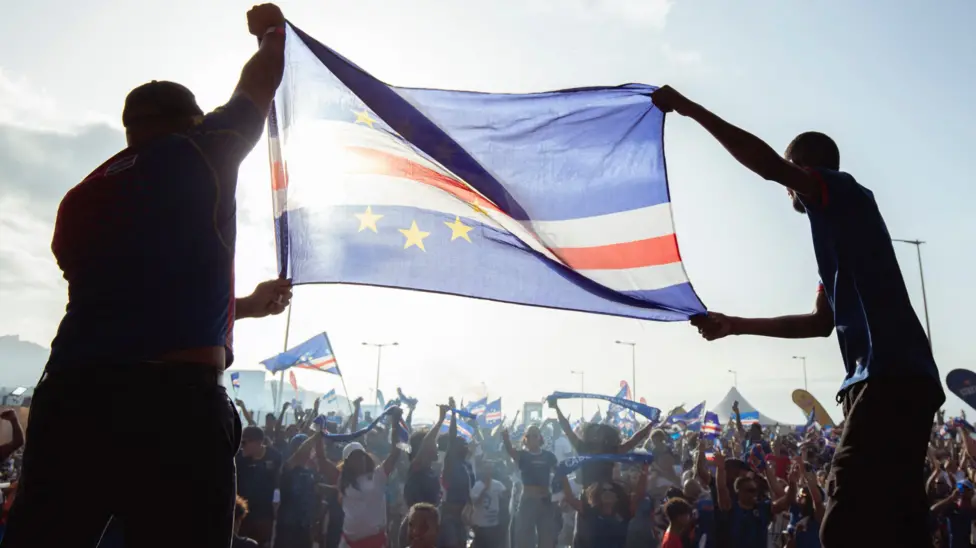Cape Verde made history on Monday, securing a place at the 2026 FIFA World Cup after a 3–0 win over Eswatini at the National Stadium in Praia. The victory sparked celebrations across the archipelago and among the diaspora, marking the first time the island nation will appear at football’s biggest stage.
The decisive moment came in the 91st minute when Stopira scored the final goal, sealing Cape Verde’s qualification. Players, staff, and fans erupted in jubilation, with some players shedding tears as years of planning and dedication came to fruition. For a nation of just over half a million people, the achievement is being hailed as the most significant event since independence from Portugal in 1975.
“Giving this happiness to these people is enormous,” said head coach Bubista. “It’s a special moment in this celebration of the 50th anniversary of our independence.” Fans in the capital city of Praia and across the islands celebrated long into the evening, waving flags, wearing special World Cup T-shirts, and joining players in emotional lap-of-honour ceremonies on the pitch.
Many of the squad hail from the Cape Verdean diaspora, including defenders Steven Moreira, born in France, and Roberto ‘Pico’ Lopes, born in Dublin. Both highlighted the unique joy of representing their homeland. “Honestly, I’ve played in Europe, I’ve won in MLS, but when you play for your country, it’s something different,” said Moreira. “You can see it when we score goals; we’re always together, dancing.”
President Jose Maria Neves joined the celebrations, holding a banner marking the country’s World Cup qualification. He likened the achievement to independence, underlining its symbolic importance. “There’s an overwhelming sense of joy and relief. We did it, and no one can take that away from us,” said Lopes, who was searching for his father among the jubilant crowd.
Technical director Rui Costa, appointed in February after a decade in English football, praised the squad’s unity and potential. “I’m proud of my country, our national team, and everyone involved. We have a great coach, great players, and the future will be bright,” he said.
Celebrations extended beyond the stadium. The Estadio da Varzea, where Cape Verde played their first qualifiers in 2000, became the centre of a festival featuring live music and performances from diaspora artists, including members of Dutch hip-hop group Broederliefde. Streets across Praia were filled with fans waving flags and honking car horns, with samba and reggae beats providing a rhythmic soundtrack.
Supporters described the moment as transformative. Taxi driver Maximo Gomes said, “It is the biggest event since independence. The President said this, and it is how the people feel.” Sydney Elias, a local hotelier, added, “The world is going to know our flag. Usually, we cheer for Portugal during the World Cup, but this time it’s our own country. I am beyond happy for them.”
Cape Verde now becomes the second-smallest nation to qualify for a World Cup, behind Iceland. The debut appearance offers the potential to face former colonial rulers Portugal, featuring stars such as Cristiano Ronaldo and Bruno Fernandes.
Costa believes qualification could have a wider impact on the country, pointing to examples across Africa. “Many countries saw things change after qualifying for the World Cup,” he noted. “I spoke with Aliou Cissé last week, and he said it transformed Senegal. It will be the same for Cape Verde — it’s already changing.”
The Blue Sharks’ achievement represents more than a sporting milestone; it is a source of national pride and a catalyst for future development. With their first World Cup on the horizon, Cape Verde is set to inspire a new generation of footballers and show the world that even small nations can make a global impact.



